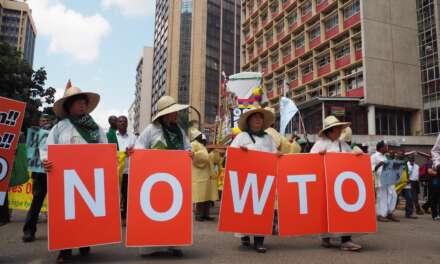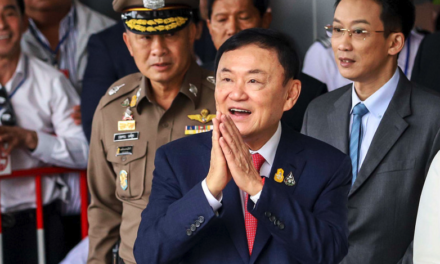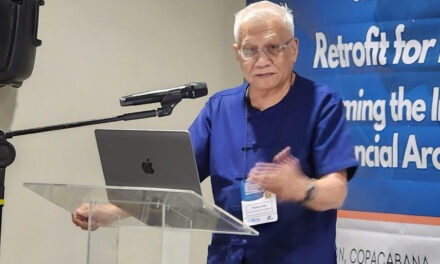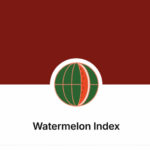Good afternoon friends, allies and comrades. First of all, I would like to thank the Asian People’s Movement on Debt and Development for inviting us to participate in this panel discussion, and for the Global Network on the Right to Food and Nutrition for supporting my presence here in the World Social Forum.
But before I start, let me just stress the word “reclaim”. Reclaiming denotes that these rights (to food, land and water) have been denied or taken away by an entity that holds power. More importantly, it attests to people’s struggles in asserting freedoms often in the face of systemic oppression, discrimination and disregard. To reclaim is to protect or restore entitlements to equality, to justice, and most especially, to dignity.
That said, we look into reclaiming the “Right to Food”. Enshrined in the Universal Declaration of Human Rights, and recently in the United Nations Declaration on the Rights of Peasants and other People Working in Rural Areas, the right to food illuminates the tenets of food availability, accessibility, and adequacy in light of addressing extreme hunger and malnutrition, particularly in many countries in the global south. From a governance perspective, it is the set of regulations, policies and institutions that should influence food production, distribution, management, and consumption to prioritize marginalized sectors, including small-scale food providers that is the backbone of our food systems. These includes our peasants, farmers, fisherfolk, indigenous peoples and pastoralists. On the other hand, food governance is heavily dominated by multinational corporations, banks and other entities who profit from and transforms food into mere commodities.
The right to food, I believe is at the heart of “Food Sovereignty” – the global campaign to reclaim power over food systems – and in its essence, to protect the rights of the hands that create food, the rural communities who are often left to extreme poverty.
The FAO have maintained that 70% if the world’s food is created by small-scale food providers. This is heavily contested by agro corporations that industrial monocropping, modernization and digitalization of agriculture is the key to attaining global food security. This mostly led to the emergence of policies that broaden free trade and value chain integration, rather than prioritizing support systems for small-holder food production. In the Philippines, the wake of the Rice Trade LIberalization Law has decimated hundreds of food producing communities and have left ricelands vulnerable to land grabbing and land-use conversions, eventually weakening the country’s capacity for food self-sufficiency, and transforming us into the largest rice importer in the world (overtaking China last year).
The Right to Land is also at the forefront of campaigns on Food Sovereignty. With land being the precursor to food production, its effective control and utilization by small scale food providers forms a large part of social struggles in rural areas. At its heart is the clamor for agrarian reform and other programs that promote redistributive justice that seek to balance power in a countryside that feudal elites and corporations have captured. In some countries in the global south, agrarian reform remains elusive as governments opt to prioritize economic land concessions, agribusiness venture agreements, land financialization and investments which are considered more economically viable than small-holder agricultural production, In countries where agrarian/land reform policies/programs have been promulgated, the struggle for effective government implementation remains protracted and often met with heavy resistance from landed elites and corporations who circumvent laws and perpetuate injustices and other forms of rights violations against communities (including unlawful dispossessions, criminalization and even killings of land rights defenders).
These challenges at the grassroots up to the policy arenas have left the agriculture sector crippled and unable to survive against the backdrop of neoliberal and pro-corporate policies that shape food markets. Hard earned agrarian reform victories are soon reversed due to the lack of effective support services (and even subsidies) for small-scale food providers, leaving them in a cycle of debt and displacement from tillages. The appalling number of farmer’s suicides in India (and with countries such the Philippines following suit, with documented numbers escalating to thousands in the last five years) speaks volumes of the deprioritization and disregard for the lives and livelihoods of food-producing communities, fueling as well the surge of rural to urban migrations.
Disaster capitalism is also emerging as a trend where corporations capture land resources as communities are driven out by extreme weather events (i.e. storm surges). Water resources such as irrigations systems, even lakes and rivers are put under corporate control to artificially sabotage local economies and food systems, weakening local food production and enabling the proliferation of industrial monocropping projects, to amass massive water distribution profits, or to make way for large infrastructure projects such as megadams. In Cambodia, the Ton Le Sap lake has been the target of large scale commercial fishing operations, while communities are driven out under the guise of ecosystems conservation. Coastal communities and fisherfolk in the Manila and Jakarta bay areas have also been targets of corporate-led displacement in favor of reclamation and the expansion of urban commercial centers and special economic zones.
Under these challenges and against the backdrop of worsening hunger and the multiple crisis brought by the pandemic, international armed conflicts and worsening climate conditions, how do we reclaim the right to food, land and water?
I believe we should start at challenging the development narratives peddled by neoliberals, by economic managers, by multinational corporations, and to put the agendas, calls and demands of small-scale food providers forward. We also have to reclaim the policy arena and strengthen advocacy initiatives that protect the lives and dignities of the hands that feed us. Let us be empowered by the experiences of our allies, like here in Nepal, where the Right to Food and Food Sovereignty have been enshrined in their Constitution as well as numerous other laws, enabled through the persistence of Nepali social movements and rights advocates.
Lastly, we must go back to the basics, in organizing, movement building and creating social pressures amidst the constant threats against activism. We reclaim through the power of solidarity in resistance. Thank you!
—
*Panel Discussion organized by APMDD, February 17, 2024









